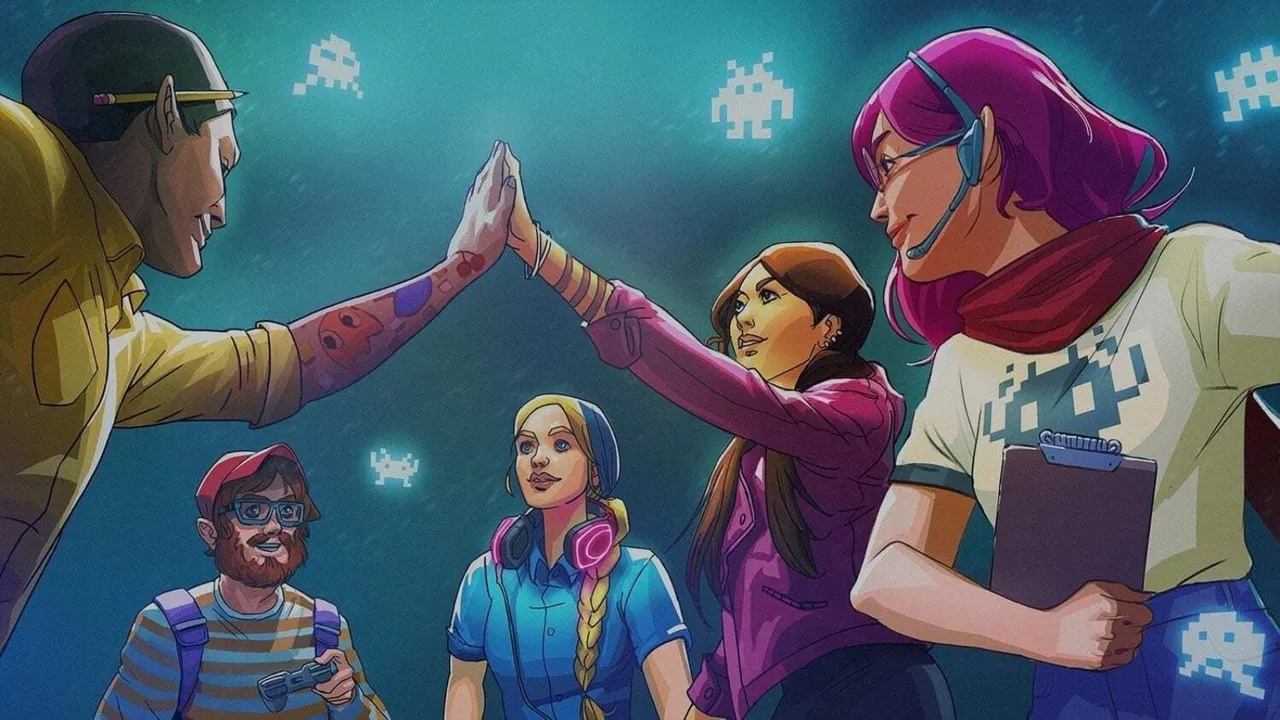Video Game Designers: The Complete Guide to Becoming One
Types of Video Game Design Jobs
Video game design is a broad field, with numerous roles and specialties that cater to different aspects of game development. Some common design jobs in the gaming industry include:
Level Designers: Level designers create the various stages or levels within a game, focusing on gameplay, layout, and overall player experience.
Narrative Designers: Narrative designers craft the storylines, characters, and dialogue that drive the game's plot and immerse players in the game world.
Combat Designers: Combat designers specialize in creating the mechanics of combat and action sequences, ensuring that they are engaging, challenging, and fun.
Mission Designers: Mission designers develop the game's objectives, quests, and tasks, providing players with a clear sense of direction and purpose.
Monetization Designers: Monetization designers focus on the integration of in-game purchases and other revenue-generating features, balancing profitability with player satisfaction.
Multiplayer Designers: Multiplayer designers develop systems and mechanics that enable players to interact and compete with one another in a shared game environment.
Sound Designers: Sound designers create the audio elements of a game, including music, sound effects, and voiceovers, to enhance the player's experience.
Systems Designers: Systems designers are responsible for creating and balancing the underlying rules and mechanics that govern how a game functions.
Technical Designers: Technical designers act as a bridge between design and programming teams, ensuring that the game's design is feasible and achievable within the technical constraints of the game engine.
Skills and Education for Video Game Design Jobs
Creativity and Artistic Ability: Game designers must have a strong sense of creativity and artistic ability, as they are responsible for creating visually appealing and engaging game worlds.
Technical Skills: Knowledge of programming languages, game engines, and software tools is essential for many video game design roles.
Communication and Collaboration: Designers often work as part of a larger development team, requiring strong communication and collaboration skills.
Problem Solving and Critical Thinking: The ability to think critically and solve problems is crucial for designing engaging and balanced game experiences.
Education and Training: While formal education is not always required for video game design jobs, a degree in game design, computer science, or a related field can be beneficial. Some designers also pursue specialized training or certifications in specific aspects of game design.
Building a Portfolio and Gaining Experience
To break into the video game design industry, aspiring designers should focus on building a strong portfolio and gaining relevant experience. Some strategies for doing so include:
Develop a Personal Project: Creating your own game or mod can showcase your skills and demonstrate your passion for game design.
Participate in Game Jams: Game jams are events where designers and developers collaborate to create a game within a short timeframe. Participating in these events can help you gain experience and build your portfolio.
Network and Join Online Communities: Connecting with professionals in the industry and participating in online communities like Discord servers can help you learn about job opportunities and build relationships with potential collaborators.
Internships and Entry-Level Positions: Internships or entry-level positions at game development studios can provide valuable hands-on experience and a foot in the door of the industry.
Freelance Work: Taking on freelance design projects can help you build your portfolio and gain experience working with clients.
The Job Market and Future Outlook for Video Game Design
The video game industry is a rapidly growing and highly competitive field, with an increasing demand for talented game designers. Factors driving the growth of the industry include:
The Popularity of Mobile Gaming: The rise of mobile gaming has led to a surge in demand for game designers who can create engaging and accessible games for mobile devices.
The Emergence of New Technologies: New technologies, such as virtual reality (VR) and augmented reality (AR), are creating new opportunities for designers to explore innovative game concepts and experiences.
The Growing Importance of Indie Game Development: The success of indie game developers has demonstrated that small teams with creative ideas can achieve significant success in the gaming industry, leading to increased demand for skilled designers.
Tips for Success in Video Game Design Jobs
To succeed in the competitive world of video game design, aspiring designers should consider the following tips:
Stay Current with Industry News and Trends: Keep up with the latest developments in the gaming industry, including news, new technologies, design techniques, and popular game genres.
Develop a Specialization: While it's essential to have a broad understanding of game design, developing expertise in a specific area can help you stand out in the job market.
Continuously Improve Your Skills: The gaming industry is continually evolving, and designers must be willing to learn and adapt to stay relevant in their careers.
Be Prepared for Challenges: Working in the gaming industry can be demanding, with tight deadlines, long hours, and high-pressure projects. Be prepared for these challenges and maintain a healthy work-life balance to avoid burnout.
Conclusion
Video game design jobs offer creative and rewarding career opportunities for those with the necessary skills and passion for the gaming industry. By understanding the various design roles, obtaining the required education and training, building a strong portfolio, and staying current with industry trends, aspiring game designers can position themselves for success in this exciting and competitive field. Get started today by clicking here to see a full list of video game design vacancies in the industry!
-
 Landing a Summer Internship in the Video Game Industry: The Ultimate Quick Guide
Landing a Summer Internship in the Video Game Industry: The Ultimate Quick Guide -
 Entry-level Jobs in the Video Game Industry: The Ultimate Guide
Entry-level Jobs in the Video Game Industry: The Ultimate Guide -
 Junior-level Jobs in the Video Game Industry: The Ultimate Guide
Junior-level Jobs in the Video Game Industry: The Ultimate Guide -
 Intermediate-level Jobs in the Video Game Industry: The Ultimate Guide
Intermediate-level Jobs in the Video Game Industry: The Ultimate Guide -
 Senior-level Jobs in the Video Game Industry: The Ultimate Guide
Senior-level Jobs in the Video Game Industry: The Ultimate Guide -
 Getting into gaming: Strategies for landing your first game development job with Katherine Mould of Keywords Studios
Getting into gaming: Strategies for landing your first game development job with Katherine Mould of Keywords Studios -
 Art and Animation Jobs in the Video Game Industry: An Overview
Art and Animation Jobs in the Video Game Industry: An Overview -
 Business Operations Jobs in the Video Game Industry: An Overview
Business Operations Jobs in the Video Game Industry: An Overview -
 Communications and Marketing Jobs in the Video Game Industry: An Overview
Communications and Marketing Jobs in the Video Game Industry: An Overview -
 Content Creation Jobs in the Video Game Industry: An Overview
Content Creation Jobs in the Video Game Industry: An Overview -
 Game Design Jobs in the Video Game Industry: An Overview
Game Design Jobs in the Video Game Industry: An Overview -
 Game Development Jobs in the Video Game Industry: An Overview
Game Development Jobs in the Video Game Industry: An Overview